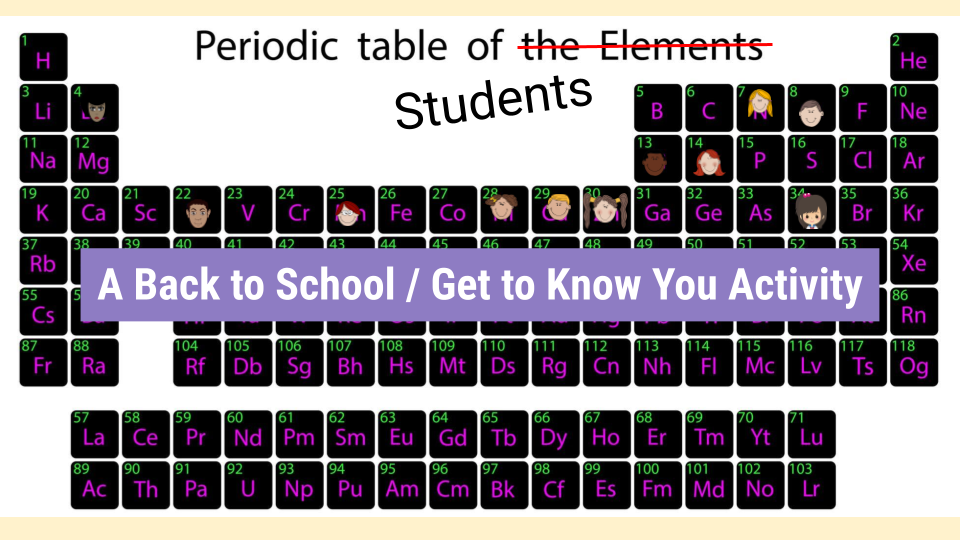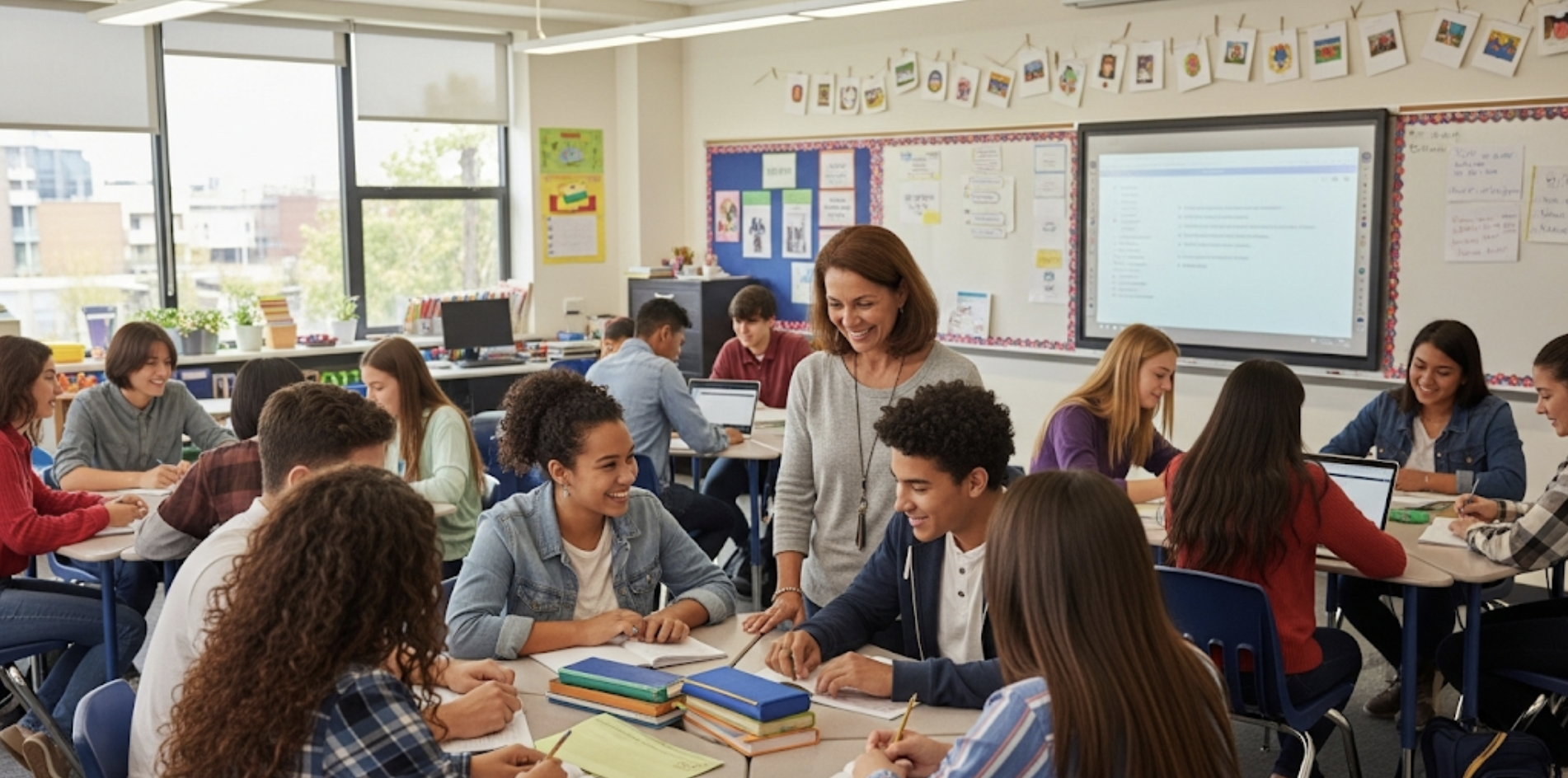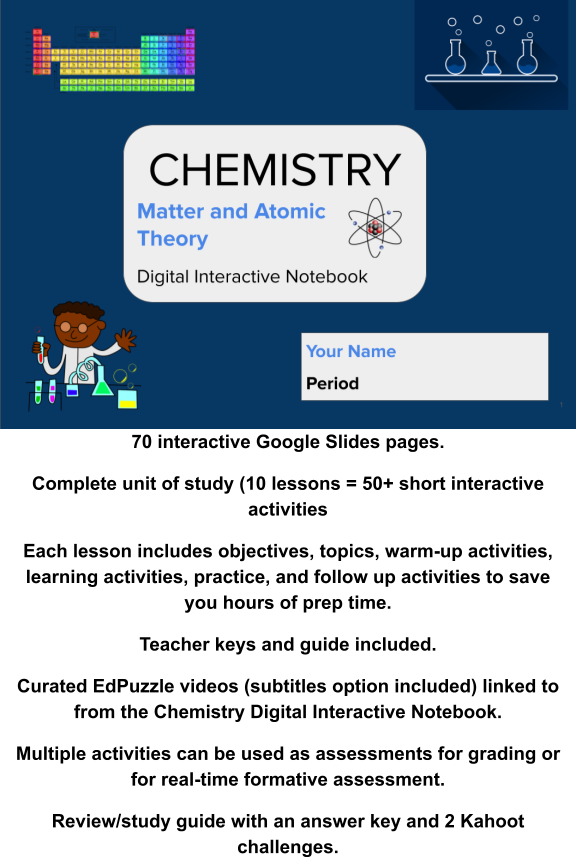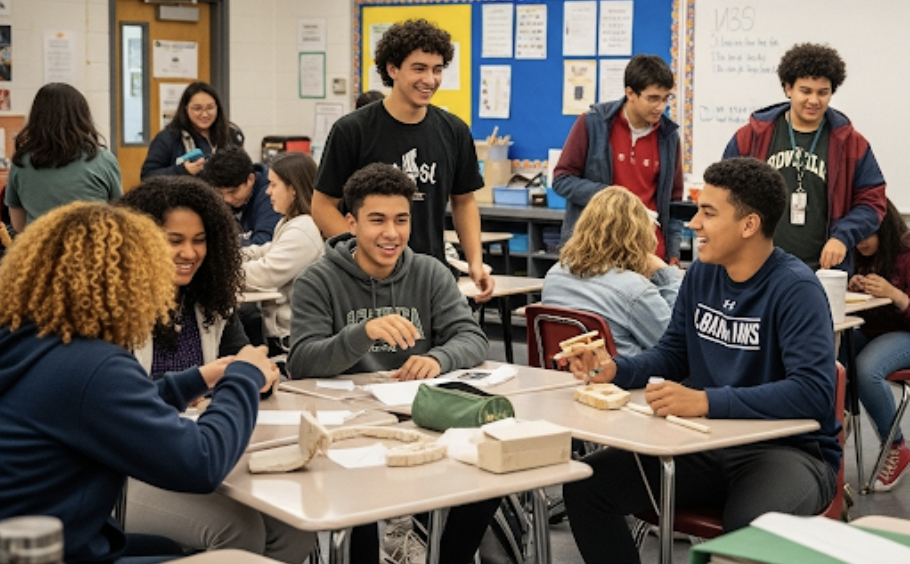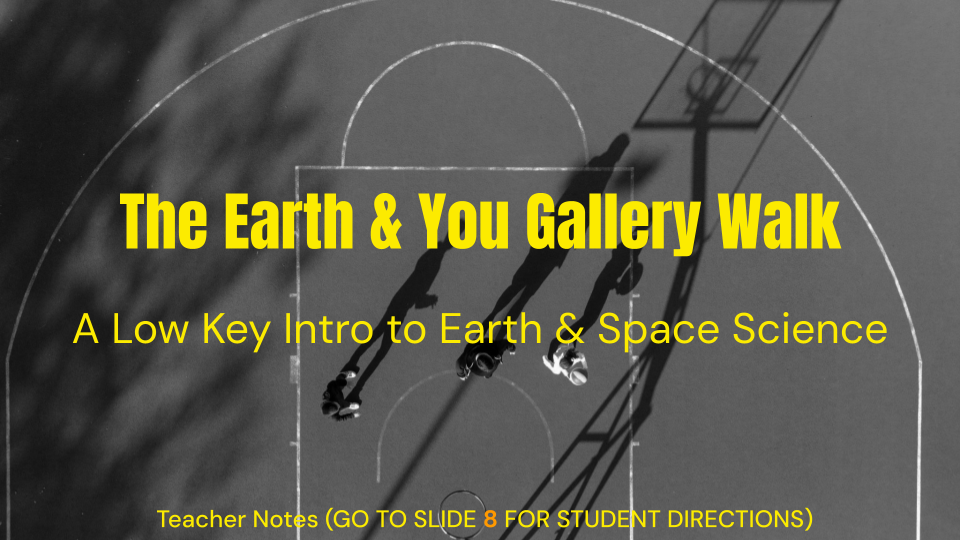Why Teachers Just Need To Have Fun
Teaching is hard. And for about a decade, I made it even harder.
I was too serious. Too strict. Too focused on meticulously following the “true educator” script. Too “not who I actually am,” and not enough me.
Looking back, I sometimes wonder if my 9th grade Environmental Science lessons were dry enough to start a desert. They definitely deteriorated the environment of the classroom….
The struggle was real.
Being the “textbook teacher” did not allow me to see the simple teaching truth that if you're bored teaching, your students are even more bored learning.
I wish I could tell you I had an epiphany—something anyone could use to snap out of their funk—but the truth is I do not remember any single moment that helped me realize I was going so hard against the grain it nearly completely eroded my joy of teaching.
I was lucky not to become a burnout statistic.
At some point I figured out how to teach better and be happy doing it.
Below, I share a few strategies I use to mix it up, shake it up, and fun it up in my science classrooms. Most can be applied in any subject.
I hope these ideas help others who may be struggling, struggle less and find joy in this very hard—but very rewarding (and dare I say, fun)—profession.
If You’re Having Fun, They’re Having Fun
Luckily, energy and fun are just as contagious as apathy and boredom. Here are 6 quick ways to renew your classroom and rejuvenate your teaching:
1. Convert Slides Into Stories
Ditch the bullets. Teach content as a story with characters and drama. Students remember narratives way longer than lists. All you need to do is get rid of most text and throw images that represent the content and its major players onto those dreaded slides and Ted Talk it all. Students will see images and hear your explanation of these images and be able to effectively process what’s happening rather than be forced to try to read, listen, and take notes all at the same time.
But if storytelling does not come naturally to you, let students create their own stories with the content they are learning. Ask them to turn content into comics, animations, or videos.
Studies show the human brain is optimized for such multisensory learning as we have evolved and live in a multisensory environment. And if you’re going…. but text is visual…. STOP IT, because our natural environment did not involve the processing of textual information for close to two hundred thousand years of the Homo Sapiens evolution. I’m not saying you should’t use text. I’m just saying there’s a lot more to effective learning than text. You know what I’m saying?
2. Gamify It
Turn practice into a game show, scavenger hunt, escape room, or a game of trash ball where the team that gets a question right gets to shoot a balled-up piece of paper for an extra point trash can free throw. Even a basic quiz competition beats another fill-in-the-blanks worksheet or multiple-choice quiz.
Digital platforms such as Gimkit, Blooket, or Kahoot! are nice too when used sparingly.
3. Role-Play Ridiculousness
Have students be the content—Newton arguing with gravity, or a mitochondrion campaigning as “the powerhouse of the cell.” Silly = sticky.
One time, I had my students make skits about different forms of alternative energy. When the “poop to power” group presented, we all got a front-row seat to the imagined future of cars—where you could take care of your basic need to expel digested food and power your vehicle at the same time. I doubt that will ever be a thing (though the car freshener industry might have been licking its chops for a minute there). Still, the students learned that we can, in fact, burn cow, and other manure for energy.
4. Move It!
Gallery walks, walk and talks, going outside, spinning the wheel of death (or names, I forget) to choose speakers—anything that gets kids out of chairs keeps brains switched on.
A few times a year and when weather allows I take my students outside and have them use sidewalk chalk to complete activities that involve drawing out concepts or solving problems. You can also launch things and play community-building or educational games, such as kickball review (whoever catches the ball gets to answer a question I taped to it).
Walk and talks can be as simple as giving your class a topic to discuss while they partner up and follow you on a short trip through the school building. You can periodically stop and give them a different prompt if you wish and come back to the classroom after 5 to 10 minutes.
5. Flip the Script
Students create mini-lessons on key topics: skits, demos, raps, or poems.
Take a boring topic, like mining, assign different kind of mining to small groups of students, and ask them to go to town writing and recording a rap or poem that explains in-situ leaching, or block caving, or fracking.
Then, put the videos in a Google or Schoology or some other learning system folder, give students some guided notes to fill out while watching each mining-themed performance, and allow the different groups to interact to clear up anything they missed or any misunderstandings.
They’ll talk, and they’ll stumble, and they’ll laugh, and they’ll own their learning.
6. Hollywood Style It
Classroom debates, shark tank challenges, and CSI-style mysteries is what I’m talking about. Sure—they take some time to create—but once you do, you have templates to reuse in the future and you multiply the learning fun.
Use your friendly, digital-neighborhood AI to help you with these. First, come up with a topic you’d like your students to debate, innovate with, or solve. Then, write a prompt for chatGPT or Gemini that contains the basic parameters for the project. Once the AI generates (roughly) what you want, you can use the software of your choice (Google slides or docs etc.) to clean it up and modify to suit your purposes, classroom, and style.
Mindshifting Away From No Pain No Gain
Teaching doesn’t have to feel like crawling through cement. If you’re having fun, odds are your students are too. And hey—anything is better than watching 40 cognitive-overload-causing slides roll by or filling out another critical-thinking-demise-inducing worksheet or packet.
If you’re asking: When am I supposed to do all this new prep when I have a pile of stuff to grade, a family, and club to run, or a team to coach? I get it and I say: Figure out how to grade fewer things so you can focus on creating learning experiences your students enjoy.
Because if they enjoy and learn from them, they’ll actually willingly participate in these new activities and you will not have to grade them, because they will be the meaningful—as opposed to the busy work—variety. You know—the stuff students must actually learn, because it will show up on the next test. It’s also helpful to communicate that if they don’t participate they’re screwed.
So….
Teaching will always have its tough moments—but it doesn't have to be a you against them battle. Make it fun and you will find fun in it. It’ll be a game changer for you and make a big difference in your students’ learning.
Also, your students will like you. Just tell them SDAs* are still not okay.
Thanks for reading my thoughts! I hope they help you in your teaching game and bringing out the best in your students. Check out my shop if you need some science teaching help or swag.
*SDAs = Sudden Displays of Affection
BOOKS & TOOLS
- September 2025 2
- August 2025 5
- July 2025 4
- June 2025 2
- August 2024 2
- July 2024 2
- June 2024 1
- October 2023 1
- September 2023 3
- August 2023 6
- July 2023 6
- July 2022 2
- June 2022 1
- November 2020 3
- October 2020 3
- April 2020 1
- March 2020 5
- July 2019 1
- June 2019 1
- April 2019 1
- January 2019 1
- November 2018 3
- October 2018 2
- September 2018 1
- August 2018 8
- July 2018 11
- June 2018 4
- May 2018 5
- April 2018 2
- March 2018 4
- February 2018 5
- January 2018 3
- December 2017 1
- November 2017 5
- October 2017 7
- September 2017 6
- August 2017 5
- July 2017 3
- June 2017 10
- May 2017 7
- April 2017 7
- March 2017 15
- February 2017 12
- January 2017 13
- December 2016 15
- November 2016 8
- October 2016 7
- September 2016 12
- August 2016 14
- July 2016 10
- June 2016 13
- May 2016 10
- April 2016 8
- March 2016 5
- February 2016 7
- January 2016 6
- December 2015 5
- November 2015 8
- October 2015 2

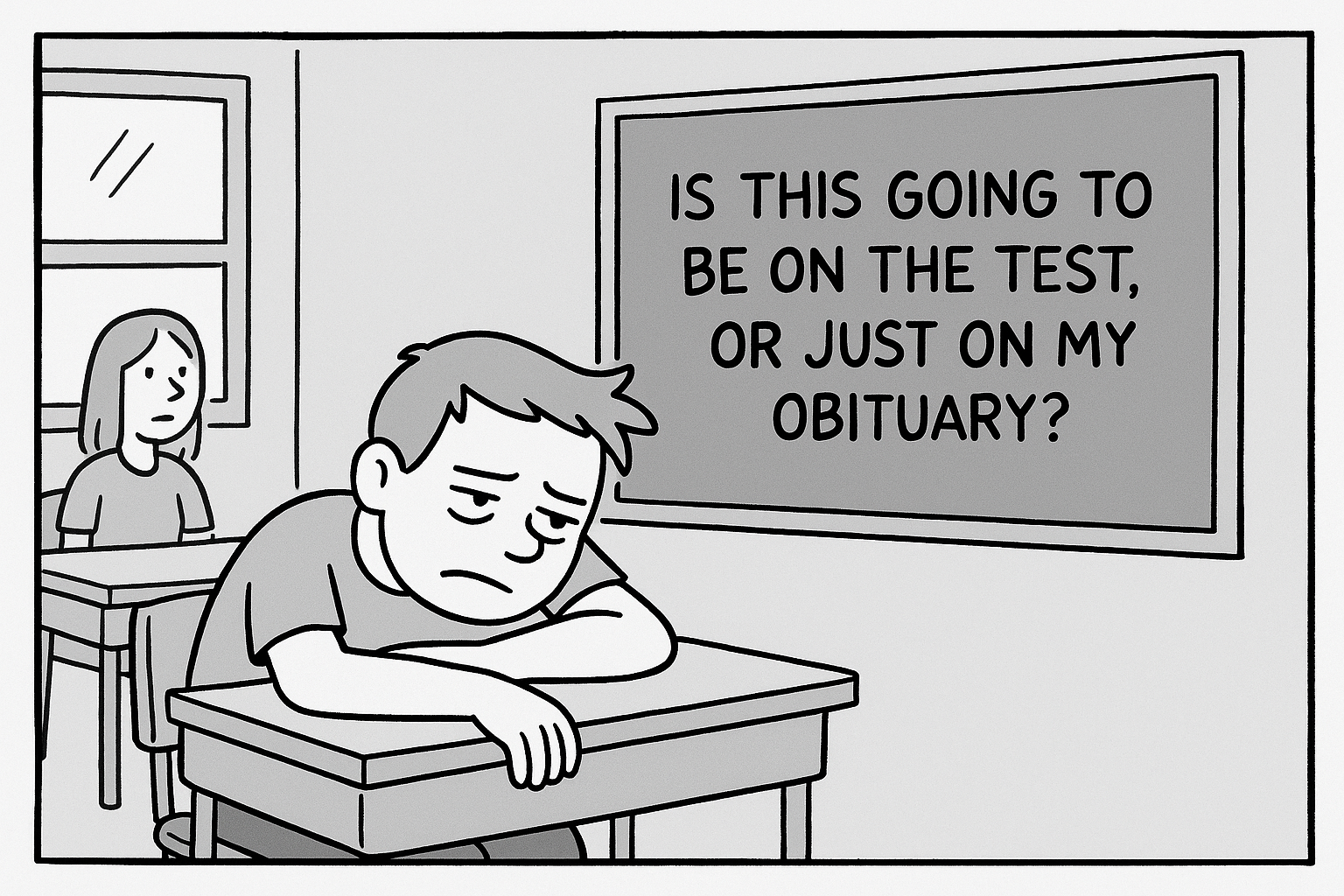



![[Earth & Space Science] Cosmic Scene Investigation: A Case of the Kilonova](https://images.squarespace-cdn.com/content/v1/5611dbcce4b0b27692201460/af009c00-4e48-4f80-a91c-3a7899d66828/Cosmic+Scene+Investigation_+A+Case+of+the+Kilonova.png)

![[Earth Science] Terraforming Mars: The Red Planet](https://images.squarespace-cdn.com/content/v1/5611dbcce4b0b27692201460/cf20dede-a655-4803-9af0-1ef1b49c8747/Terraforming+Mars_+The+Red+Planet+_Shark+Tank_+Innovation+Challenge.png)



